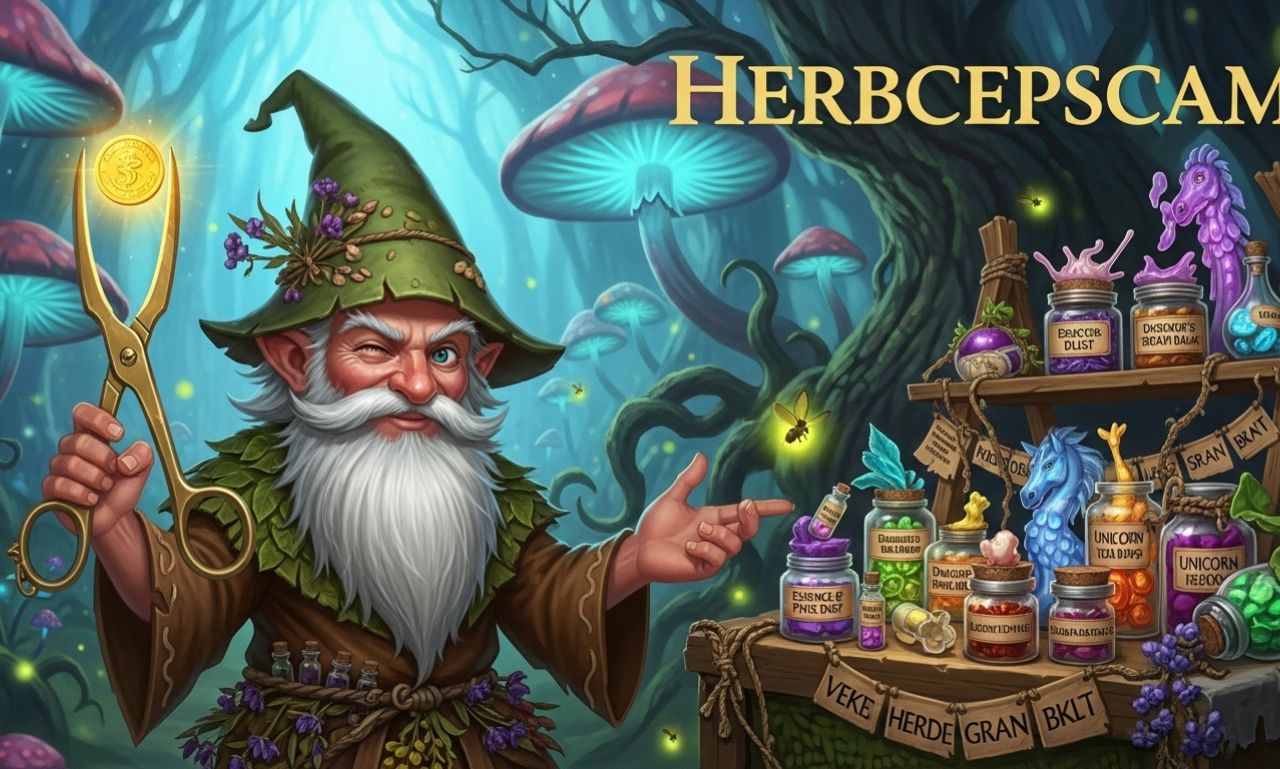Herbal supplements have gained immense popularity in recent years, promising a natural path to better health and wellness. With everything from weight loss aids to stress relievers, it’s easy to see why many people are tempted by these products. However, lurking behind the allure of herbal remedies is a darker side that consumers must be aware of: Herbcepscam.
As beneficial as some herbal supplements can be, the industry is riddled with scams that prey on unsuspecting individuals looking for quick fixes. Understanding these pitfalls isn’t just wise; it’s essential for anyone who wants to navigate this crowded market safely. In this post, we’ll dive deep into the world of herbal supplements, uncovering common scams and red flags you should watch out for when shopping for your next remedy. Your health deserves more than empty promises—let’s ensure you’re equipped with the knowledge you need!
What are herbal supplements?
Herbal supplements are products derived from plants, utilized for their potential health benefits. They come in various forms, including capsules, powders, teas, and extracts.
These supplements often contain a single herb or a blend of multiple ingredients. Some popular examples include ginseng for energy boosts and echinacea for immune support.
Many people turn to herbal remedies as natural alternatives to pharmaceuticals. The appeal lies in the belief that nature can provide solutions without the side effects typically associated with synthetic drugs.
However, it’s crucial to note that not all herbal products undergo rigorous testing. This lack of regulation can lead to inconsistencies in quality and potency among different brands.
While they may offer potential benefits, consumers should approach these supplements with caution—an informed choice is key when exploring the world of herbs.
Common scams in the herbal supplement industry
The herbal supplement industry is rife with scams that prey on consumers seeking natural remedies. One common tactic involves products marketed as “miracle cures” for serious health conditions. These often lack scientific backing, leaving buyers misled and hopeful.
Another prevalent scam features supplements that promise rapid weight loss or muscle gain without any effort. Such claims are not only unrealistic but also dangerous when combined with poor dietary choices.
Many companies use fake testimonials to create an illusion of effectiveness. Prospective customers see glowing reviews from seemingly satisfied users, unaware they might be fabricated or exaggerated.
Moreover, some brands engage in price gouging, charging exorbitant amounts for ingredients readily available elsewhere at a fraction of the cost. This exploitation takes advantage of consumer trust and desire for wellness solutions without real value behind them.
Fake ingredients and misleading labels
Fake ingredients in herbal supplements are a growing concern. Many products claim to contain potent botanicals, but often they’re filled with fillers or entirely different substances.
Misleading labels can easily trick consumers. A bottle might boast of “natural” or “organic” components while concealing synthetic additives and low-quality substitutes.
Some brands use complex names for common plants, making it difficult for buyers to verify authenticity. This tactic creates an illusion of quality that may not exist.
Moreover, the absence of standardized testing amplifies the risk. Without proper regulation, there’s no guarantee that what’s on the label matches what’s in the bottle.
These deceptive practices undermine trust and put health at risk. Consumers deserve transparency and should be vigilant when choosing herbal remedies.
False health claims and marketing tactics
False health claims are alarmingly common in the herbal supplement sector. Many products boast miraculous benefits that simply don’t hold up under scrutiny. They promise quick fixes for chronic illnesses or effortless weight loss. Such exaggerations can mislead consumers into believing these supplements are panaceas.
Marketing tactics often play on emotions, using phrases like “all-natural” or “doctor-recommended.” While these terms sound credible, they can be misleading without proper context. It’s easy to fall for catchy slogans and eye-catching packaging.
Some companies employ celebrity endorsements to create an illusion of legitimacy. Just because a famous face supports a product doesn’t equate to efficacy or safety.
The absence of scientific evidence behind many claims should raise red flags. Always question what you read, especially when something seems too good to be true. Critical thinking is your best ally against herbcepscam tactics in this unregulated industry.
How to spot a scam: red flags to look out for
Spotting a scam in the herbal supplement market can be tricky. However, certain red flags often give them away.
First, watch for exaggerated claims. If a product promises miracle cures or instant results, it’s likely too good to be true.
Next, check the ingredient list. Missing details or scientific names that seem off should raise suspicion.
Look out for vague sourcing information. Reputable brands clearly state where their herbs come from and how they’re processed.
Be cautious of products with no contact information or customer service options. Legitimate companies are usually ready to answer questions.
Read reviews carefully but critically; fake testimonials may shine an overly positive light on ineffective products while burying negative experiences.
Staying vigilant helps protect your health and wallet from herbcepscam traps lurking in plain sight.
The dangers of falling for herbcepscam
Falling for herbcepscam can have serious implications for your health and finances. Many individuals seeking natural remedies end up purchasing ineffective or even harmful products.
These scams often contain untested ingredients, leading to potential side effects that could worsen existing conditions. Instead of healing, you might find yourself in a worse situation than before.
Moreover, spending money on fraudulent supplements drains your wallet while providing no real benefit. This financial loss can be particularly damaging if you’re already dealing with healthcare costs.
The emotional toll is another factor to consider. Discovering you’ve been duped can lead to frustration and mistrust in legitimate herbal products.
It’s crucial to stay informed about the risks associated with these scams so you can make smarter choices when it comes to your health and well-being.
Tips for buying safe and effective herbal supplements
When purchasing herbal supplements, prioritize quality over price. Look for products that have been tested by third-party labs. Certifications from recognized organizations can indicate a level of safety and efficacy.
Examine the ingredient list carefully. Ensure each component is clearly stated and sourced from reputable suppliers. Avoid any product with vague terms like “proprietary blend.”
Research the brand’s reputation online. User reviews can provide insight into effectiveness and potential side effects.
Consult healthcare professionals before starting any new supplement, especially if you’re on medication or have pre-existing health conditions.
Stay wary of outrageous claims promising miraculous results in no time at all. If it sounds too good to be true, it likely is.
Consider checking for clinical studies backing the product’s benefits. Evidence-based support adds credibility to what you’re buying.
Conclusion
Herbal supplements have gained popularity as people look for natural alternatives to manage their health. However, the rise in demand has also led to an influx of scams within the industry. Understanding these scams is crucial for anyone considering herbal products.
Many brands often use fake ingredients and misleading labels to attract consumers. Some products may contain little or none of the advertised herbs, while others might include fillers that can be harmful.
False health claims are rampant in this sector. Advertisers frequently exaggerate benefits, suggesting that a supplement can cure diseases or provide miraculous results without scientific backing. It’s essential to approach such claims with skepticism.
Recognizing red flags can save you from falling victim to herbcepscam. Look out for vague ingredient lists, “miracle cures,” and aggressive marketing tactics promising instant results.
The dangers associated with these scams extend beyond wasted money; they can lead to serious health risks if unsafe ingredients are consumed over time.
For those interested in buying safe and effective herbal supplements, research is key. Seek reputable brands that prioritize transparency and quality control. Reading customer reviews and consulting healthcare professionals will provide additional layers of safety when making choices about your wellness journey.
Navigating the world of herbal supplements requires careful consideration but being informed empowers you against potential pitfalls associated with herbcepscam.

